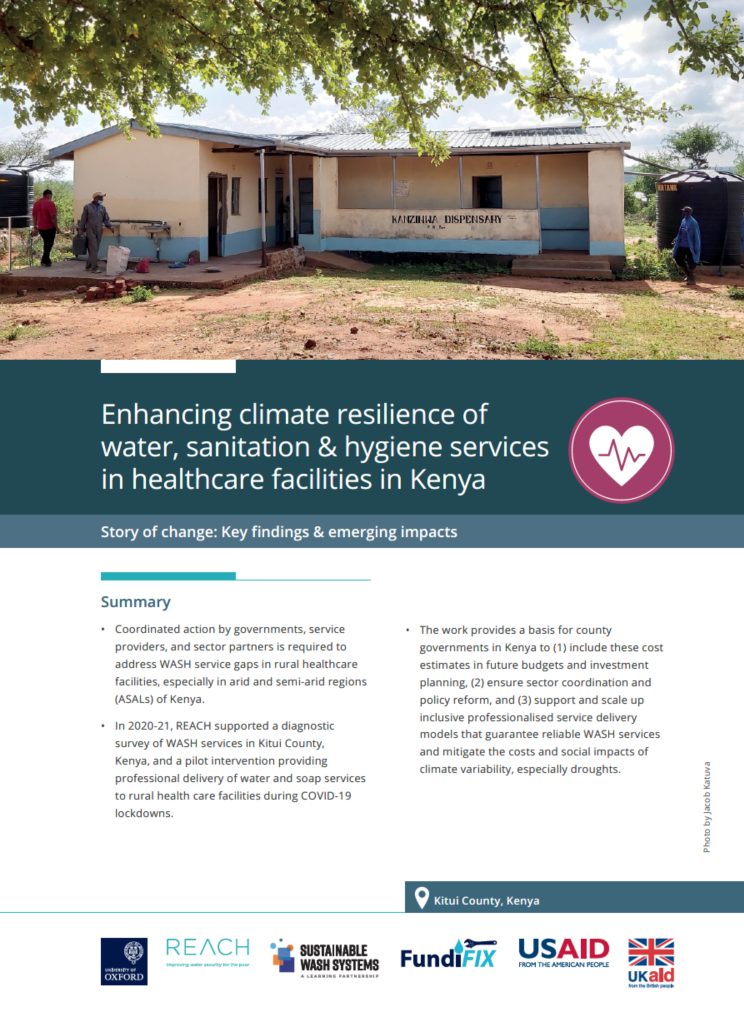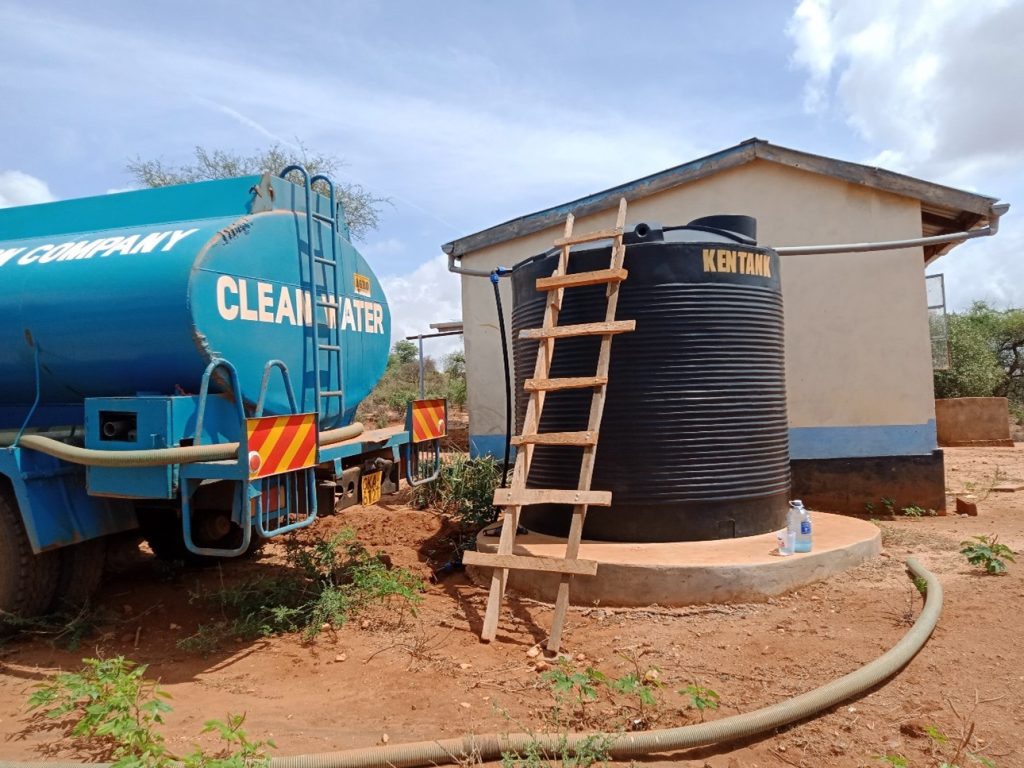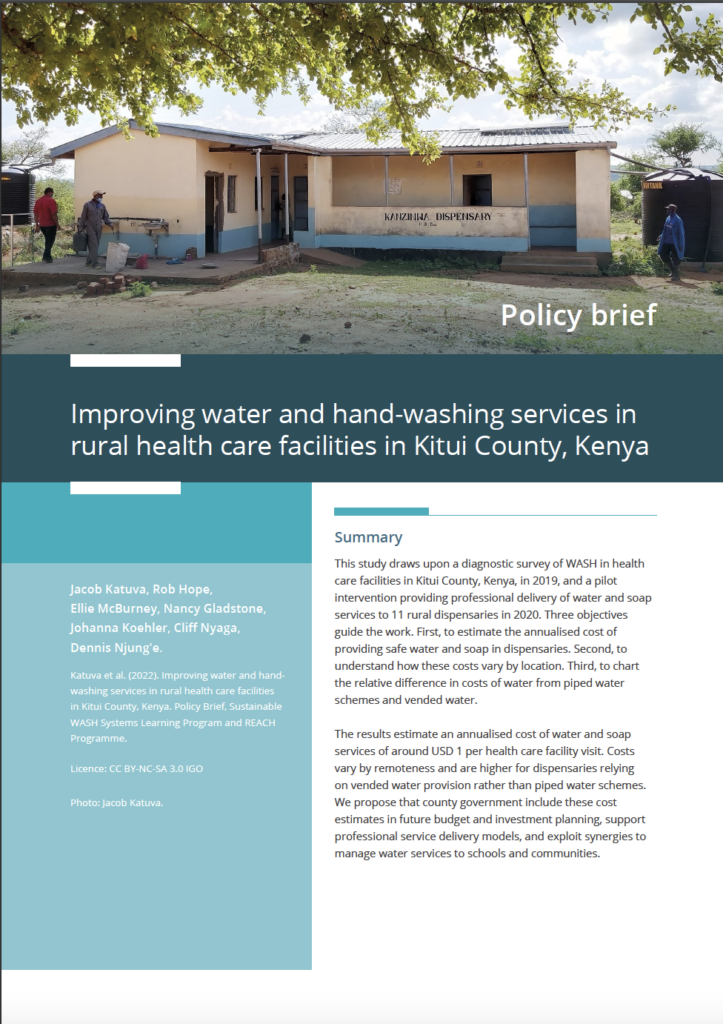
Improving water security for the poor

Enhancing climate resilience of water, sanitation & hygiene services in healthcare facilities in Kenya
In rural Africa dispensaries and clinics are the most common health care facility (HCF) type and the first point of service for the rural population. WASH services provision in these facilities is key to disease prevention, as underscored by the COVID-19 pandemic. However, data from WHO/UNICEF indicate that half of all health care facilities in developing countries lack basic water services and a quarter of them do not provide hand hygiene at points of care, creating risks for vulnerable patients and health care workers.
Instead of relying on community maintenance of waterpoints, new models of rural water service delivery that allocate risks and responsibilities between government and service providers are emerging, such as FundiFix. In 2020/21, FundiFix, ran a pilot programme in 12 HCFs in Kitui, Kenya, to test how such a professional service delivery model could be applied to health care facilities to deliver safe water and soap reliably.


